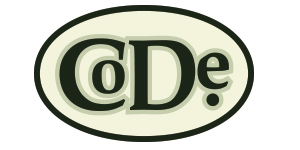- June 20, 2011
- Posted by: thestateofart
- Category: Literature
 In the section on Charles Dickens, the author of ‘Defiant Joy’ writes about a ‘New York Times’ article, which puts me in the awkward position of writing a review (this) about a study (‘Joy’) of a critique (‘Times’ article) of a biography (‘Charles Dickens:A Critical Study’) about a writer (Dickens). I usually tend to just go straight for the original stuff and skip all the reviews of reviews, not to mention this fourth and fifth tier business, but something funny happens when G.K. Chesterton is one of those in the string of reviewers—all of it matters.
In the section on Charles Dickens, the author of ‘Defiant Joy’ writes about a ‘New York Times’ article, which puts me in the awkward position of writing a review (this) about a study (‘Joy’) of a critique (‘Times’ article) of a biography (‘Charles Dickens:A Critical Study’) about a writer (Dickens). I usually tend to just go straight for the original stuff and skip all the reviews of reviews, not to mention this fourth and fifth tier business, but something funny happens when G.K. Chesterton is one of those in the string of reviewers—all of it matters.
It turns out that Chesterton was such an important literary figure that even his reviews and critiques deserved weighty responses (from the Times, from Belmonte, and from me). Of course, this is all conjecture for I haven’t actually read Chesterton yet. But if ‘Defiant Joy’ serves any purpose well, it’s that of surveying G.K.’s works so that the reader can best choose which to tackle first.
After all, it’s a foregone conclusion that you will tackle Chesterton’s works. The quotes of his strewn throughout are evidence enough of the value in that and the fact that such renowned writers as J.R.R. Tolkein and C.S. Lewis were inspired by and worked with Chesterton makes an even more compelling case. I will read Chesterton if for no other reason than the erudite and joyful subject seems to make everyone who discusses him a bit more positive and a lot more eloquent, even though being associated with the man seems to grow initials on one’s name. As a writer with three initials in my pen name, I will easily take that risk.
When I get to Chesterton, however, I think I will focus on the literary master’s fiction and original non-fiction. There’s only so much criticism one can take!

